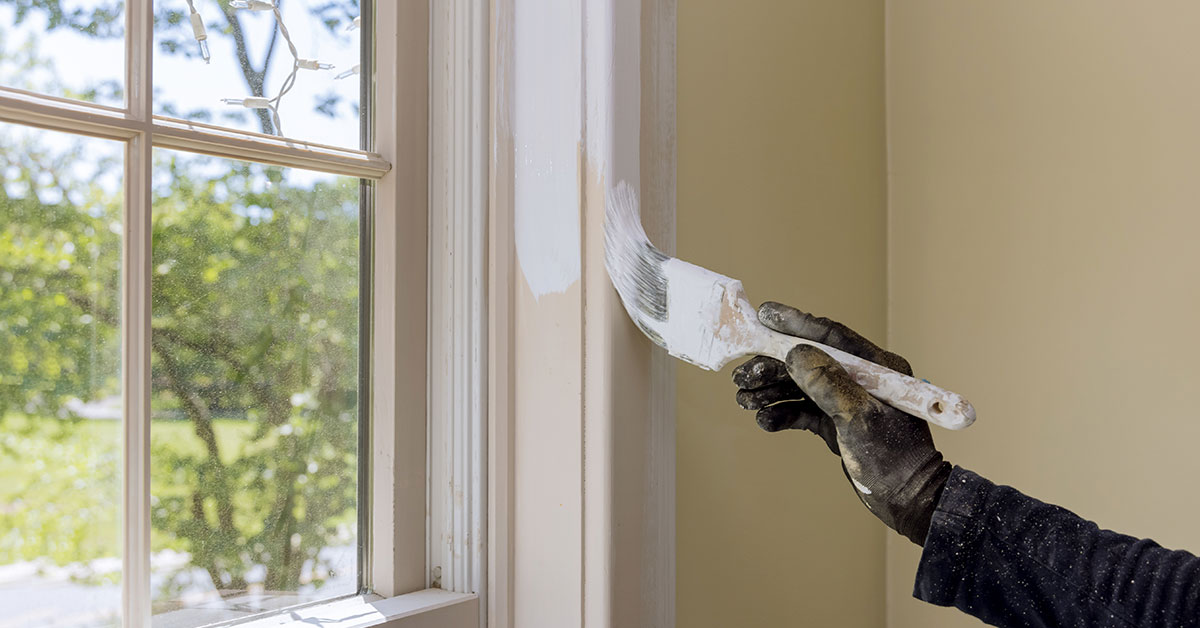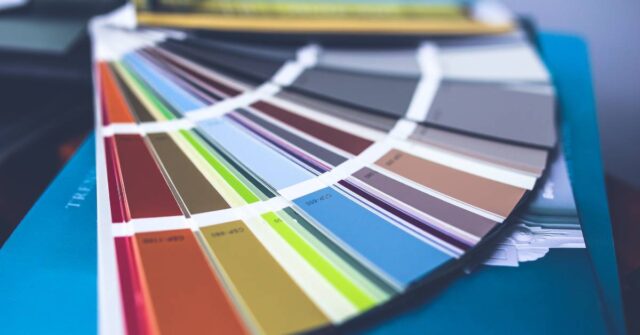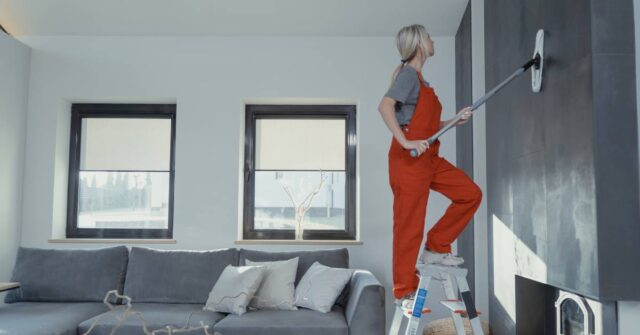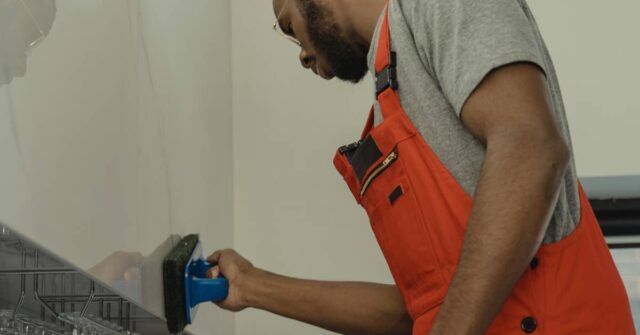Whenever you are doing DIY painting around your home you are bound to get to the point where you need to paint the surrounds of your windows.
If you perform proper preparation with painting tape you can avoid getting paint on the windows, however even the most experienced can still run into an unfortunate event.
So the question becomes, how do you remove paint from the glass on your windows?
First, Assess the Damage
By first assessing how much paint has actually been splashed or splattered on the glass windows you can determine how much of a cleanup you have on your hands.
Ideally, paint is best removed while it is still wet. But if the splatter is not discovered till after it has dried then here are a few reliable techniques for getting rid of the marks.

Method 1 – Water and Sharp Edges
- Prepare a small bucket of warm soapy water.
- Use a sponge to cover the paint marks with this soapy solution.
- When the paint softens it can be scraped away with a razor.
- Hold the razor at a 45-degree angle to the glass and be careful not to scratch the glass.
- Scrape with slow, smooth movements.
- Once the paint is gone, clean the area with a window cleaner.
Method 2 – Strong Solvents
Note: Avoid inhaling the fumes of any of these solvents. Ventilate the room as much as possible.
Acrylic Paint
Acrylic paint can be dissolved with rubbing alcohol.
Enamel Paint
Acetone/nail polish remover can be used to remove enamel paint.
How to Use Solvent
- Put a little solvent on a rag and wipe the paint from the window.
- Several applications might be necessary.
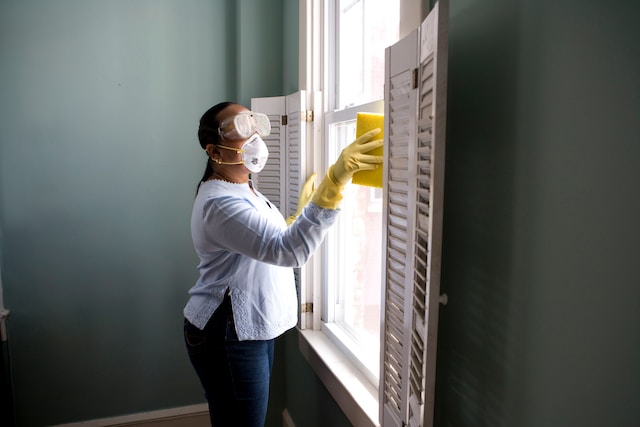
Method 3 – Use Heat
Sometimes the heat from a hairdryer or a hot air gun can be used to soften the paint, allowing it to be scrapped off.
However, there is a risk when applying heat to a glass window. If the heat is applied too suddenly then the glass can easily crack.
Did You Solve Your Issue?
We hope these simple tips have allowed you to remove paint from your windows.
Expert residential painters, such as us, will always protect your floors and windows from any spills or paint splatter. This prevents excessive time spent on cleaning up.
Taking the time to do proper painting preparation ensures a quicker and better result overall.

